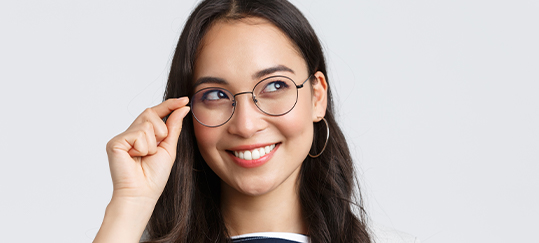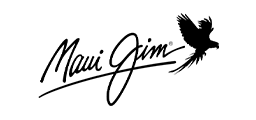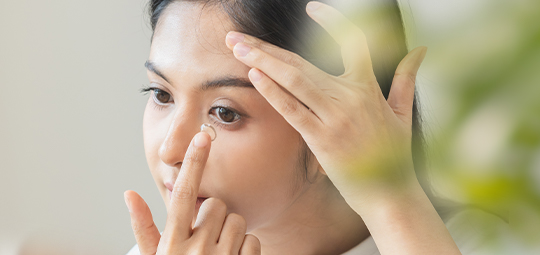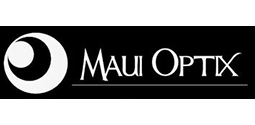It’s Never too Early for Eye Health
It’s never too early to focus on your children’s eye health and vision. Their sense of sight is vital at every age and every stage of development. That’s why early eye exams are essential.
Children might be nervous about their eye exams. Rest assured, our optometrists are experienced with children and can put them at ease. It’s important to give them a positive impression of optometrists early on in life so they feel comfortable coming for regular appointments.
If your child does need glasses, we offer a wide selection of colors and styles that will make them smile.
Book their appointment today to set them up for success—and a lifetime of healthy vision.
Request AppointmentWhen Do Children Need Eye Exams?
The American Optometric Association recommends that children have exams at the following intervals:
- A comprehensive exam to establish a baseline between the ages of 6 and 12 months
- Another comprehensive exam as they grow and develop between the ages of 3 and 5
- Annual, comprehensive exams starting before 1st grade until adulthood
Healthy vision can help children succeed in life and academics. Beyond just seeing what’s in front of them at school, visual skills are needed for social, cognitive, and motor skill development.
Request AppointmentChildren’s Vision Issues & Stages of Sight
Several vision conditions can develop in childhood and can impact eyesight. Our experienced optometrists can diagnose and recommend treatment for a variety of vision issues, including the following.
Myopia (Nearsightedness)
Myopia (nearsightedness) begins in childhood and can continue to develop until vision stabilizes in adulthood. High myopia increases the risks of more serious conditions later on, and children with undiagnosed myopia can struggle in school.
Most children with myopia received a diagnosis before the age of 12, making children’s eye exams a key component of addressing the condition early on. While it cannot be cured, myopia can be controlled if detected early.
Strabismus (Crossed Eyes)
A muscle condition known as strabismus is usually the culprit when the eyes are crossed. It generally means the eyes are not working together properly. Sometimes, the condition is obvious as one eye turns in a different direction.
Strabismus does not get better on its own and requires intervention from an optometrist to rectify.
Amblyopia (Lazy Eye)
Amblyopia, also known as a lazy eye, occurs when there is a large difference in prescription between each eye. Over time, the connection between the brain and affected eye decreases, as one eye consistently provides poor images.
Treatment, such as patching the healthier eye and forcing the brain to connect with the weaker one, can typically resolve this condition.
Convergence Insufficiency
When blurry or double vision is present, convergence insufficiency may be the reason. Convergence insufficiency occurs when the eyes don’t work together while looking at nearby objects or up-close work.
An eye exam is imperative to detect convergence insufficiency, as it occasionally presents without visual cues.
Stages of Sight
There are many milestones in a baby’s visual progression. Here’s what to expect at some important stages:
- Birth to 4 Months: Your baby’s vision improves rapidly at this stage. They should be focusing on nearby objects and faces and begin reaching for things.
- 5 to 8 Months: A 3-dimensional view of the world begins to form, as does color vision.
- 9 to 12 Months: Babies begin to grasp objects and can judge distances.
- 1 to 2 Years: Hand-eye coordination and depth perception should be well-developed.
As babies grow and develop, you can help encourage their healthy visual development by playing games like peek-a-boo and patty-cake, providing objects that can be explored with the hands, and playing games that include dropping things and picking them up.
To monitor your child’s visual development at the appropriate pace, be sure to bring them in for comprehensive eye exams as well.
How Do I Know If My Child Needs Glasses?
If a child experiences a vision issue, they are often unable to articulate the problem—they might not even know there is a problem. Unlike adults, children have not established a baseline of what proper vision looks like for them.
Bringing your child for regular eye exams can help establish that baseline. We can help detect any vision problems early on. Book their appointment today!
Request AppointmentOur Location

PUKALANI
- 24 Kiopa’a St. #102
- Pukalani, HI 96768
Contact Us
- Phone: 808-214-9074
- Email: [email protected]
Clinic Hours
- Monday: 8:00 AM – 5:00 PM
- Tuesday: 8:00 AM – 5:00 PM
- Wednesday: 8:00 AM – 5:00 PM
- Thursday: 8:00 AM – 5:00 PM
- Friday: 8:00 AM – 5:00 PM
- Saturday: 8:00 AM – 5:00 PM
- Sunday: Closed
KAHULUI
- 101 Pakaula St.
- Kahului, HI 96732
Contact Us
- Phone: 808-873-9588
- Email: [email protected]
Clinic Hours
- Monday: 8:30 AM – 5:30 PM
- Tuesday: 8:30 AM – 5:30 PM
- Wednesday: 8:30 AM – 5:30 PM
- Thursday: 8:30 AM – 5:30 PM
- Friday: 8:30 AM – 5:30 PM
- Saturday: Closed
- Sunday: Closed

Our Google Reviews
Our Brands














